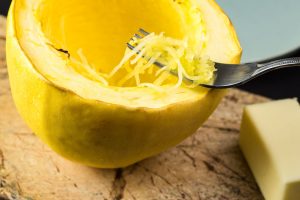Node Smith, ND
Did you know that only about 10% of the population actually meet the daily requirements for fruits and vegetables?
If you’re reading this, chances are you eat fruits and vegetables. But did you know that according to a CDC survey published this week, only about 10% of the population actually meet the daily requirements for fruits and vegetables set out by the FDA – and those requirements are questionably low, from a holistic medical standpoint. People living in poverty have especially low rates. Women had the highest rates – 15%.
The survey looked at groups based on state, class, race and gender. Wealthy Americans didn’t seem to eat a whole lot more vegetables than lower-income people – 11.4% versus 7%, however, poorer states, as a whole, had very low rates. South Dakota surveyed only 2.2% of their younger aged adult (18-30) population as eating the recommended amount of fruits and vegetables.
Too Much Money Goes Towards Getting People to Eat Processed Foods
The authors of the survey did comment that this issue is more than just an awareness issue. “The food industry is not exactly working with public health on this, there’s a multi million-dollar industry working to get people to eat [processed foods],” said the research team.
It is important to be aware of our cultural struggle in this area of health and wellness. This is perhaps the greatest and most glaring underlying causal factor of the chronic disease we see in this country, and other developed nations. As we go into the holidays, here are some ideas to help raise the standard of how much fruits and vegetables we ALL are eating.
Get caught snacking on something green
Take your celery sticks and hummus to work. Snack on some kale chips, broccoli florets, or some raw spinach. I’m convinced that people in many work places are actually embarrassed to eat healthy food at work – they don’t want to be that “weird health nut.” Well, none of us want to be that “overweight diabetic” either, however, it’s a growing trend. Own your own health, and show others that you support health in your life.
Take an amazing vegetable dish to a party
There are so many amazing recipes for cooking vegetables that are fast and delicious. And remember, just because it is a “vegetable” dish, doesn’t mean it has to be vegan, or dairy free, or any of that nonsense; throw in some cheese, or some bacon, and convert some of your family members:) Here’s an amazing squash salad recipe I made for a birthday party recently (I was apprehensive to take a squash salad at first, but the entire thing got eaten, and people loved it).
Squash Salad Recipe

- 1 spaghetti squash – cooked (cook this squash at 400 degrees for 30-45 minutes with butter or oil inside of it and flipped upside down on a baking sheet, then use a fork to “shred” it out of the rind)
- ¼ cup diced kalamata olives
- ½-1 cup diced tomatoes
- 2 tbsp diced basil (fresh)
- ½ cup goat cheese (add it in little chunks so that it doesn’t congeal as one huge mass)
- Salt, pepper, italian spices to taste
Just add all the ingredients into a large bowl, stir and serve. It may not look like much, but even the kids will devour this cheesy delight.
Learn how to cook WITH vegetables
I think that a lot of people out there have this idea that vegetables need to be cooked by themselves and eaten separately. That’s simply not true. Try adding some zucchini, celery, and fresh tomato to your favorite canned spaghetti sauce. Or stir-fry some snap peas, bok choy, and green peppers with your ground beef. The spaghetti squash from above makes an excellent substitute for pasta (seriously, it really does).
- Make a challenge with a friend to learn a new vegetable every couple of weeks through the holidays.
Image Copyright: <a href=’https://www.123rf.com/profile_songbird839′>songbird839 / 123RF Stock Photo</a>
 Node Smith, ND, is a naturopathic physician in Portland, OR and associate editor for NDNR. He has been instrumental in maintaining a firm connection to the philosophy and heritage of naturopathic medicine among the next generation of docs. He helped found the first multi-generational experiential retreat, which brings elders, alumni, and students together for a weekend camp-out where naturopathic medicine and medical philosophy are experienced in nature. Four years ago he helped found the non-profit, Association for Naturopathic ReVitalization (ANR), for which he serves as the board chairman. ANR has a mission to inspire health practitioners to embody the naturopathic principles through experiential education. Node also has a firm belief that the next era of naturopathic medicine will see a resurgence of in-patient facilities which use fasting, earthing, hydrotherapy and homeopathy to bring people back from chronic diseases of modern living; he is involved in numerous conversations and projects to bring about this vision.
Node Smith, ND, is a naturopathic physician in Portland, OR and associate editor for NDNR. He has been instrumental in maintaining a firm connection to the philosophy and heritage of naturopathic medicine among the next generation of docs. He helped found the first multi-generational experiential retreat, which brings elders, alumni, and students together for a weekend camp-out where naturopathic medicine and medical philosophy are experienced in nature. Four years ago he helped found the non-profit, Association for Naturopathic ReVitalization (ANR), for which he serves as the board chairman. ANR has a mission to inspire health practitioners to embody the naturopathic principles through experiential education. Node also has a firm belief that the next era of naturopathic medicine will see a resurgence of in-patient facilities which use fasting, earthing, hydrotherapy and homeopathy to bring people back from chronic diseases of modern living; he is involved in numerous conversations and projects to bring about this vision.
